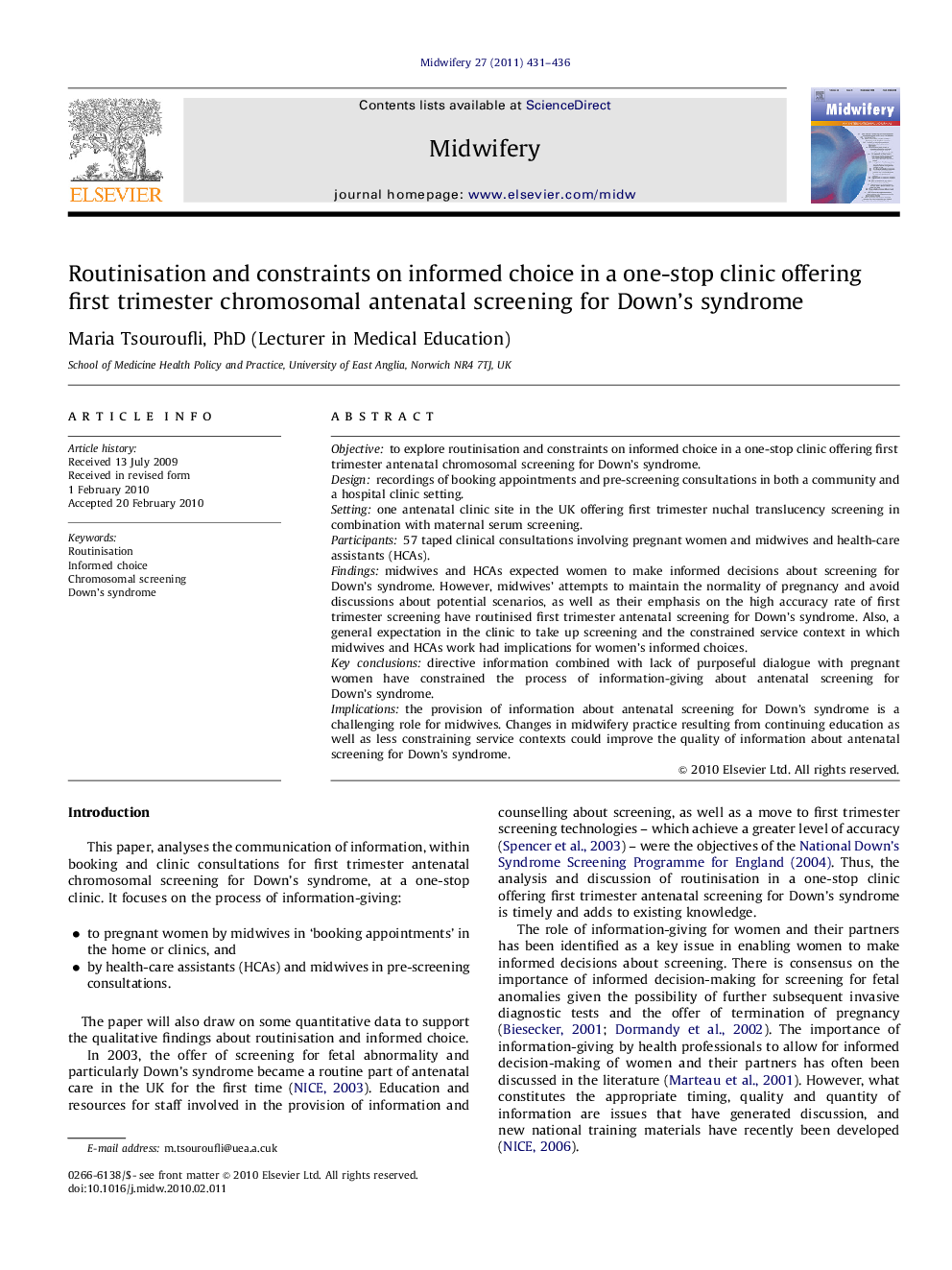| Article ID | Journal | Published Year | Pages | File Type |
|---|---|---|---|---|
| 1084729 | Midwifery | 2011 | 6 Pages |
Objectiveto explore routinisation and constraints on informed choice in a one-stop clinic offering first trimester antenatal chromosomal screening for Down’s syndrome.Designrecordings of booking appointments and pre-screening consultations in both a community and a hospital clinic setting.Settingone antenatal clinic site in the UK offering first trimester nuchal translucency screening in combination with maternal serum screening.Participants57 taped clinical consultations involving pregnant women and midwives and health-care assistants (HCAs).Findingsmidwives and HCAs expected women to make informed decisions about screening for Down’s syndrome. However, midwives’ attempts to maintain the normality of pregnancy and avoid discussions about potential scenarios, as well as their emphasis on the high accuracy rate of first trimester screening have routinised first trimester antenatal screening for Down’s syndrome. Also, a general expectation in the clinic to take up screening and the constrained service context in which midwives and HCAs work had implications for women’s informed choices.Key conclusionsdirective information combined with lack of purposeful dialogue with pregnant women have constrained the process of information-giving about antenatal screening for Down’s syndrome.Implicationsthe provision of information about antenatal screening for Down’s syndrome is a challenging role for midwives. Changes in midwifery practice resulting from continuing education as well as less constraining service contexts could improve the quality of information about antenatal screening for Down’s syndrome.
